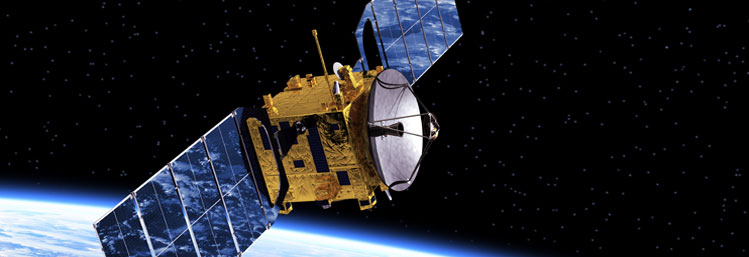
Satellite Systems Engineering
MSc
Scholarships of £10,000 are available to eligible full-time UK/international students of this course.
- Duration
- Start date
- Location
Suitable for applications.
Teaching, learning and assessment
This programme will be taught at our campus in Bradford.
Each 20-credit module will be delivered through 2-hour weekly lectures, scheduled seminars (including delivery by industry experts), project supervision, tutorials, and in a laboratory (where applicable).
You will be assessed through a group project (including an oral presentation), individual reports, and open-book examinations.
External experts
This programme benefits from the expert input of a number of external contributors, including:
Dr Hector Fenech
Independent consultant, module leader - Satellite Communications Systems.
Former Director of Future Satellite Systems in Eutelsat. Responsible for module design and delivery.
Professor Marco Lisi
Module leader - Satellite Navigation Systems.
Former European Space Agency special advisor in the Navigation Directorate, and Chief Technical Advisor to the Executive Director of the European GNSS Agency. Responsible for module design and delivery.
Dr Franco Saverio Rubertone
Independent consultant, module leader - Satellite Earth Observation Systems.
Former Director at Thales Alenia Space Italia in earth observation satellite design and delivery. Responsible for module design and delivery.
Study support
You will benefit from a suite of digital teaching and collaborative platforms supported by the University including CANVAS, Horizon, and Teams. You will be taught by a team of top industrial experts, who have ample experience in space engineering.
You will be assigned a personal tutor - a member of the teaching staff, to help maximise your success and sense of belonging among the academic community at Bradford. Personal tutors will provide academic guidance, support your professional and personal development, provide initial advice, and signpost to career guidance and other services offered by the Faculty and University.
Research
The programme team enjoys a long research track record in satellite systems engineering, and strong, well-established collaborations with space agencies and satellite key operators.
The team has been a part of the Satellite Network of Excellence (SatNEx) since 2004, funded first by the European Union and currently by the European Space Agency.
In the 1980s, research initially focused on communications, most notably satellite-earth propagation and antennae design. Since the 1990s, integration of satellites into terrestrial mobile networks and their application into the transport infrastructure, including air traffic management and railways, has continued to be the main focus of research up to the present day.
During the 2000s, space research at the University has expanded to include satellite imaging and remote sensing to study, for example, space weather, and observation. The University satellite imaging and AI research activities resulted in the development of the Automated Solar Activity Prediction (ASAP) system, in collaboration with NASA and ESA (European Space Agency). ASAP works with NASA's Solar Dynamics Observatory, and is among the UK's space weather assets. It is integrated into NASA's space weather portal, and is used as a decision-making tool for NASA's robotic missions and radiation effects on NASA's Chandra X-ray observatory orbit, and is acknowledged as an international benchmark.
Research opportunities
Potential short-term research opportunities will be available to work alongside our post-doctoral researchers or PhD students on externally funded research projects.
Terms and conditions of study
The University has a set of terms and conditions for all students accepting an offer to study on a course here at Bradford. This is called The Student Contract. This document sets out the Terms and Conditions which apply when you accept an offer of a place on a programme of study at the University of Bradford.
View our Student Contract for further details.
Transparency statement
Information about this programme and its modules has been published in advance of the academic year to which it applies. Every effort has been made to ensure that the information is accurate at the time of publication, but changes may occur given the interval between publishing and commencement of teaching. Any change which impacts the terms and conditions of an applicant’s offer will be communicated to them.
